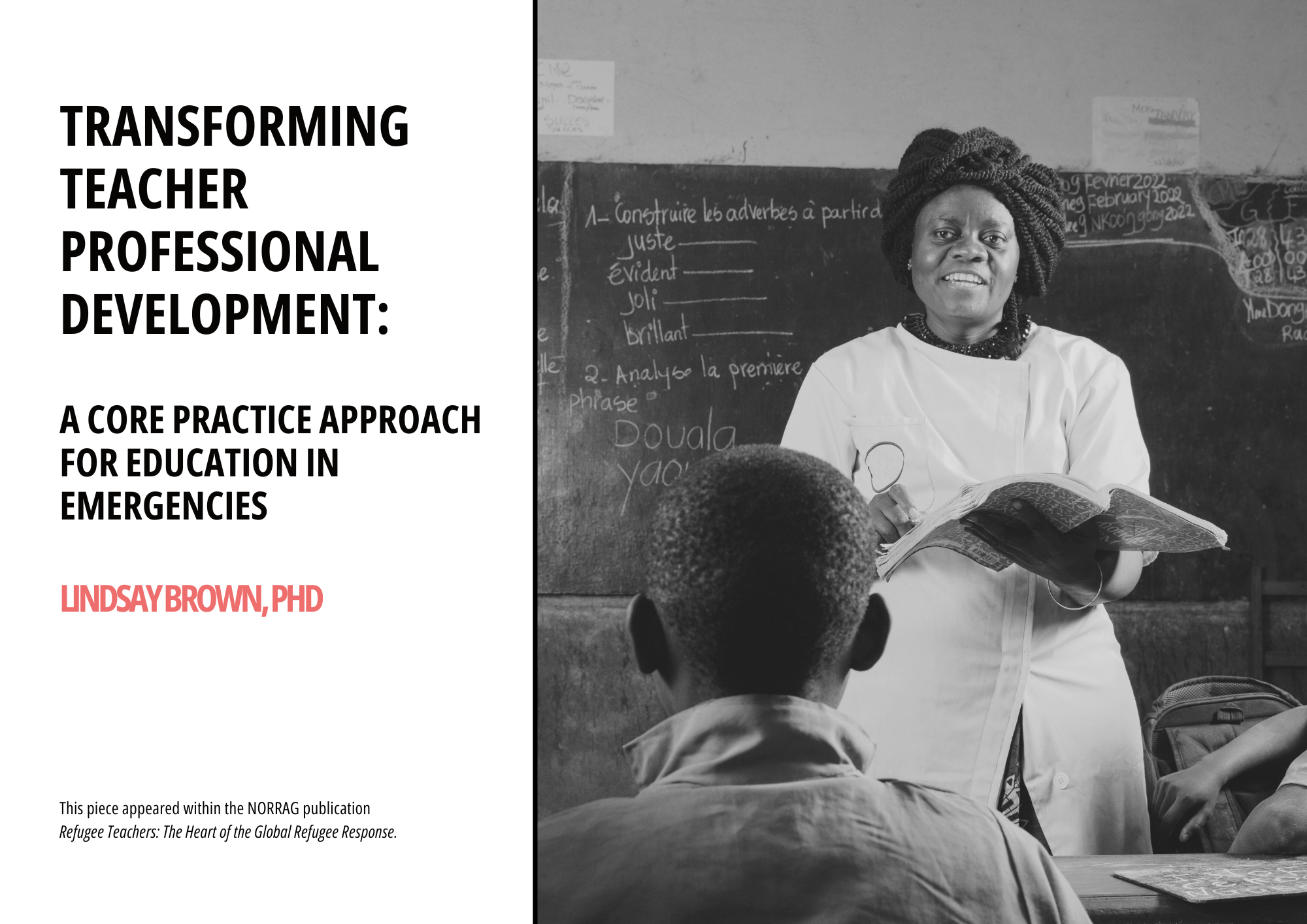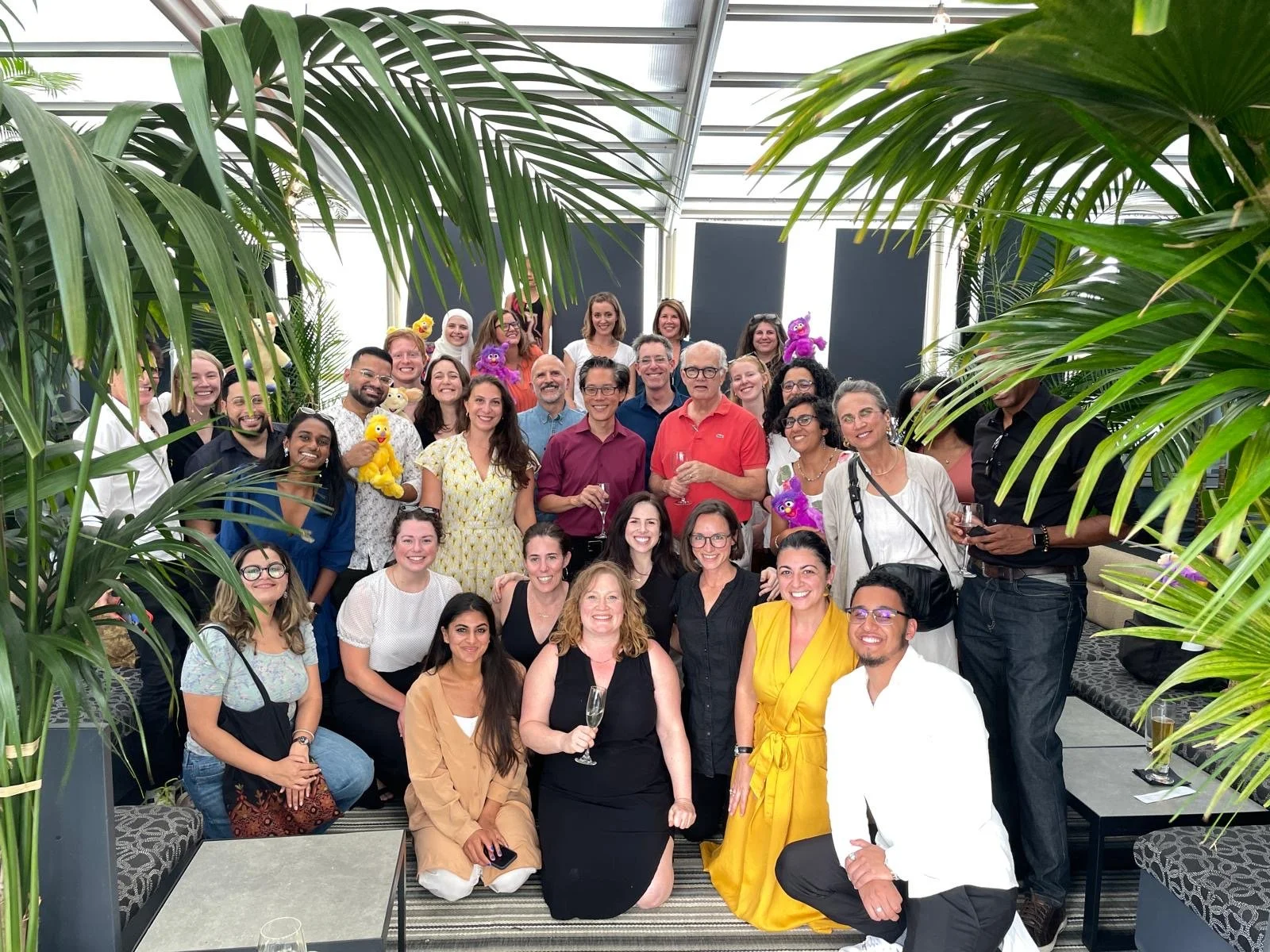Resources
HOLAS Assessment Bank
The Holistic Learning Assessment System (HOLAS) Bank is a curated inventory of educational tools/assessments and relevant monitoring and evaluation (M&E) resources designed for use and/or implemented in Colombia and Peru.
Gobee learning agenda: Our top six learnings from developing an edtech tool for emergency settings
Gobee, a prototype assessment tool for emergency settings, set out to make it easier for teachers and facilitators to measure children’s learning progress. Following the initial stages of development, War Child and NYU Global TIES share their learnings and publish the codes on an open-source platform.
Lessons from an Implementation Study of Integration of Early Childhood Development (ECD)Information and Guidance into Well-Child Visits in Primary Healthcare Centers run by Jordan’s Ministry of Health
This study, led by Global TIES for Children at New York University in collaboration with the International Rescue Committee (IRC) research team, is an implementation study of a new intervention co-designed by the Ministry of Health (MoH) in Jordan, the IRC, and Sesame Workshop. This intervention seeks to increase families’ access to early childhood development (ECD) information and activities through the expansion of MoH midwife training beyond physical health and nutrition to other aspects of ECD, such as managing child behavioral challenges and supporting early learning,
and the incorporation of such additional content into well-child visits for children ages 0 to 5 years old.
Evaluating Program Enhancement Strategies for Remedial Tutoring: A Cluster-Randomized Control Trial With Syrian Refugee Students in Lebanon
Despite widespread enthusiasm for remedial education programming with refugee populations, there is little rigorous evidence on how to design and implement such programs. We employ a cluster-randomized design of non-equivalent treatment groups to test the impact of access to two types of program enhancement: longer program duration and the addition of skilltargeted social and emotional learning (SEL) activities for Syrian refugees enrolled in Lebanese public schools. We find that, compared to 10 weeks of programming, 26 weeks marginally increases students’ literacy skills (ES = 0.04) and significantly improves behavioral regulation (ES = 0.31), but students reported less positive perceptions of their public school environment (ES= −0.83 to −0.89) and remedial tutoring site (ES= −0.15 to −0.24). We also find that the addition of skill-targeted SEL activities to 26 weeks of programming results in higher student reports of school-related stress compared to programming without skill-targeted activities (ES = 0.21). Implications for program and policy are discussed.
This Albanian City Should Inspire America to Go Big on ‘School Streets’ - Streetsblog By Kea Wilson
This Albanian City Should Inspire America to Go Big on ‘School Streets.’
Streets near schools should be for kids — not cars. And this Albanian city is set to reimagine roads in front of all its learning centers.
[Dataset]Phone-Based Reach Up and Learn
Reach Up and Learn (RUL) is a home-visiting program that was introduced in Jamaica in 1975. In 2016, the International Rescue Committee (IRC), in collaboration with the Arab Resource Collective, adapted RUL for the context of Syrian and host community families in Lebanon, Jordan and Syria and integrated RUL into its education, child protection, and health programs in Jordan, Lebanon, and Syria.
NORRAG Spotlights Dr. Lindsay Brown's Vision for Teacher Professional Development in Education in Emergencies
This brief discusses the Core Practice approach for transforming teacher professional development, particularly in fragile contexts. It outlines how Core Practices, a set of evidence-based, high-impact teaching techniques, can enhance student learning outcomes by offering an approach that is practical, coherent, and adaptable. A Core Practice approach offers a structured and concrete practice-based learning cycle that has been shown to increase teacher uptake of practice in diverse and challenging environments. The framework also fosters a common vision and language of high-quality teaching practice, increasing collaboration and consistent messaging among educational stakeholders.
Transforming Teacher Professional Development: A Core Practice Approach for Education in Emergencies
In this insightful brief, we delve into the transformative power of the Core Practice approach—a beacon of hope for educators working in challenging environments. The Core Practice framework introduces evidence-based, high-impact teaching techniques that promise not only to enhance student learning outcomes but also to provide a practical, coherent, and adaptable solution for teacher professional development.
Refugee Teachers: The Heart of the Global Refugee Response
NORRAG has brought together 48 authors from academia, humanitarian agencies, and think tanks to produce 27 papers that showcase current evidence and offer policy directions to prioritise and protect the work and well being of refugee teachers everywhere.
THE GOBEE LEARNING AGENDA: Can we sustainably implement and scale a digital assessment tool in the low resource and Education in Emergencies sector?
Since the unprecedented shift to distance learning that came with Covid lockdowns and mass school closures, increasing numbers of Education in Emergencies (EiE) actors have been turning to EdTech to find solutions to the complex challenges facing the sector. This has led to a number of emerging EdTech products and prototypes, many of which have shown great potential.
EdTech in Low-Resource Settings: Challenges, opportunities, and conditions for success
This report summarizes the results of a survey the Gobee team launched to better understand the experience of stakeholders in the Education in Emergencies (EiE) sector when it comes to EdTech in low-resource settings, with a special focus on digital assessments and what it takes to develop and maintain open-source models (OSS) and data protection regulations.
"Inside the Arab Classroom": A New Podcast Series Exploring the Dynamic Landscape of Education in the Arab World
New York University’s Global TIES for Children and afikra are pleased to announce the launch of "Inside the Arab Classroom," a new podcast series that explores education traditions and innovations within Arabic-speaking nations. The series tells stories from inside Arab classrooms - from how Arabic literacy is taught to who decides what constitutes ‘good citizens’ - and aims to provoke curiosity among learners of all ages and in all contexts about the challenges to and opportunities for learning and thriving in Arab classrooms.













![[Dataset]Phone-Based Reach Up and Learn](https://images.squarespace-cdn.com/content/v1/5fa0560c3a27c834f6a6b5ac/1703271023801-JED68Q0PDBWB8Z0FFEFX/Primary%2BEducation%2Band%2BLearning%2Bin%2BEmergencies.jpg)







